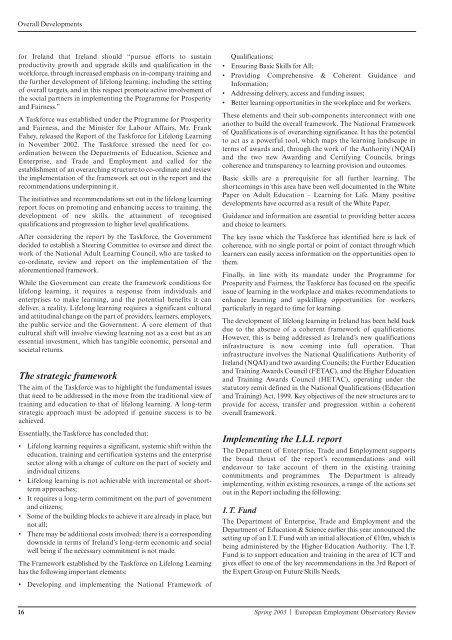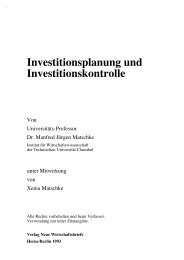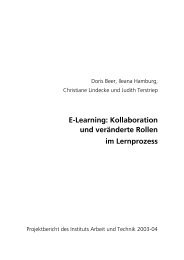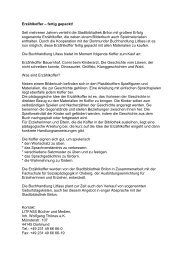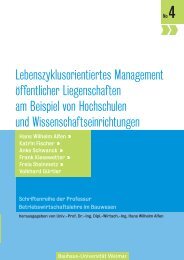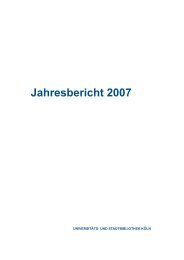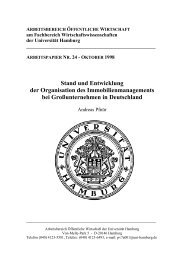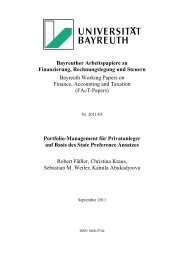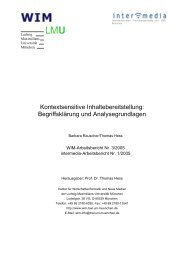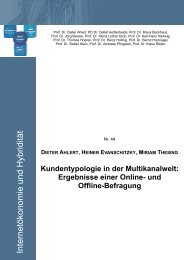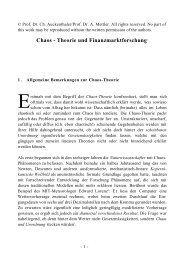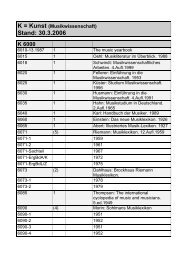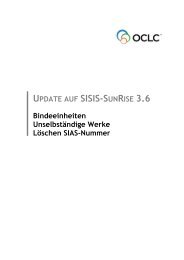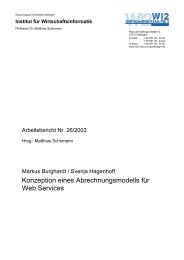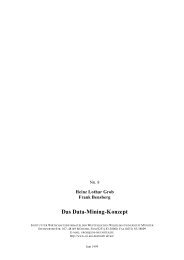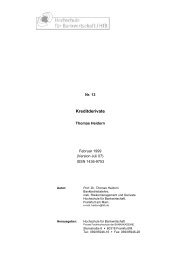FRANCE The
FRANCE The
FRANCE The
You also want an ePaper? Increase the reach of your titles
YUMPU automatically turns print PDFs into web optimized ePapers that Google loves.
Overall Developments<br />
for Ireland that Ireland should “pursue efforts to sustain<br />
productivity growth and upgrade skills and qualification in the<br />
workforce, through increased emphasis on in-company training and<br />
the further development of lifelong learning, including the setting<br />
of overall targets, and in this respect promote active involvement of<br />
the social partners in implementing the Programme for Prosperity<br />
and Fairness.”<br />
A Taskforce was established under the Programme for Prosperity<br />
and Fairness, and the Minister for Labour Affairs, Mr. Frank<br />
Fahey, released the Report of the Taskforce for Lifelong Learning<br />
in November 2002. <strong>The</strong> Taskforce stressed the need for coordination<br />
between the Departments of Education, Science and<br />
Enterprise, and Trade and Employment and called for the<br />
establishment of an overarching structure to co-ordinate and review<br />
the implementation of the framework set out in the report and the<br />
recommendations underpinning it.<br />
<strong>The</strong> initiatives and recommendations set out in the lifelong learning<br />
report focus on promoting and enhancing access to training, the<br />
development of new skills, the attainment of recognised<br />
qualifications and progression to higher level qualifications.<br />
After considering the report by the Taskforce, the Government<br />
decided to establish a Steering Committee to oversee and direct the<br />
work of the National Adult Learning Council, who are tasked to<br />
co-ordinate, review and report on the implementation of the<br />
aforementioned framework.<br />
While the Government can create the framework conditions for<br />
lifelong learning, it requires a response from individuals and<br />
enterprises to make learning, and the potential benefits it can<br />
deliver, a reality. Lifelong learning requires a significant cultural<br />
and attitudinal change on the part of providers, learners, employers,<br />
the public service and the Government. A core element of that<br />
cultural shift will involve viewing learning not as a cost but as an<br />
essential investment, which has tangible economic, personal and<br />
societal returns.<br />
<strong>The</strong> strategic framework<br />
<strong>The</strong> aim of the Taskforce was to highlight the fundamental issues<br />
that need to be addressed in the move from the traditional view of<br />
training and education to that of lifelong learning. A long-term<br />
strategic approach must be adopted if genuine success is to be<br />
achieved.<br />
Essentially, the Taskforce has concluded that:<br />
• Lifelong learning requires a significant, systemic shift within the<br />
education, training and certification systems and the enterprise<br />
sector along with a change of culture on the part of society and<br />
individual citizens.<br />
• Lifelong learning is not achievable with incremental or shortterm<br />
approaches;<br />
• It requires a long-term commitment on the part of government<br />
and citizens;<br />
• Some of the building blocks to achieve it are already in place, but<br />
not all;<br />
• <strong>The</strong>re may be additional costs involved; there is a corresponding<br />
downside in terms of Ireland’s long-term economic and social<br />
well being if the necessary commitment is not made.<br />
<strong>The</strong> Framework established by the Taskforce on Lifelong Learning<br />
has the following important elements:<br />
• Developing and implementing the National Framework of<br />
Qualifications;<br />
• Ensuring Basic Skills for All;<br />
• Providing Comprehensive & Coherent Guidance and<br />
Information;<br />
• Addressing delivery, access and funding issues;<br />
• Better learning opportunities in the workplace and for workers.<br />
<strong>The</strong>se elements and their sub-components interconnect with one<br />
another to build the overall framework. <strong>The</strong> National Framework<br />
of Qualifications is of overarching significance. It has the potential<br />
to act as a powerful tool, which maps the learning landscape in<br />
terms of awards and, through the work of the Authority (NQAI)<br />
and the two new Awarding and Certifying Councils, brings<br />
coherence and transparency to learning provision and outcomes.<br />
Basic skills are a prerequisite for all further learning. <strong>The</strong><br />
shortcomings in this area have been well documented in the White<br />
Paper on Adult Education – Learning for Life. Many positive<br />
developments have occurred as a result of the White Paper.<br />
Guidance and information are essential to providing better access<br />
and choice to learners.<br />
<strong>The</strong> key issue which the Taskforce has identified here is lack of<br />
coherence, with no single portal or point of contact through which<br />
learners can easily access information on the opportunities open to<br />
them.<br />
Finally, in line with its mandate under the Programme for<br />
Prosperity and Fairness, the Taskforce has focused on the specific<br />
issue of learning in the workplace and makes recommendations to<br />
enhance learning and upskilling opportunities for workers,<br />
particularly in regard to time for learning.<br />
<strong>The</strong> development of lifelong learning in Ireland has been held back<br />
due to the absence of a coherent framework of qualifications.<br />
However, this is being addressed as Ireland’s new qualifications<br />
infrastructure is now coming into full operation. That<br />
infrastructure involves the National Qualifications Authority of<br />
Ireland (NQAI) and two awarding Councils; the Further Education<br />
and Training Awards Council (FETAC), and the Higher Education<br />
and Training Awards Council (HETAC), operating under the<br />
statutory remit defined in the National Qualifications (Education<br />
and Training) Act, 1999. Key objectives of the new structures are to<br />
provide for access, transfer and progression within a coherent<br />
overall framework.<br />
Implementing the LLL report<br />
<strong>The</strong> Department of Enterprise, Trade and Employment supports<br />
the broad thrust of the report’s recommendations and will<br />
endeavour to take account of them in the existing training<br />
commitments and programmes. <strong>The</strong> Department is already<br />
implementing, within existing resources, a range of the actions set<br />
out in the Report including the following:<br />
I.T. Fund<br />
<strong>The</strong> Department of Enterprise, Trade and Employment and the<br />
Department of Education & Science earlier this year announced the<br />
setting up of an I.T. Fund with an initial allocation of €10m, which is<br />
being administered by the Higher Education Authority. <strong>The</strong> I.T.<br />
Fund is to support education and training in the area of ICT and<br />
gives effect to one of the key recommendations in the 3rd Report of<br />
the Expert Group on Future Skills Needs.<br />
16 Spring 2003 | European Employment Observatory Review


